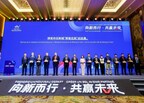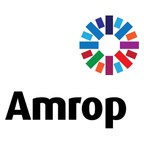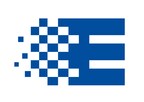Fintech PR
New Opportunity for a Shared Future — China-France Industrial Cultural Exchange Week Launched in Beijing E-town

BEIJING, Jan. 31, 2024 /PRNewswire/ — As part of a series of events marking the 60th anniversary of the establishment of diplomatic relations, the Chinese and French sides launched the China–France industrial cultural exchange week in the Beijing Economic-Technological Development Area (BDA), also known as Beijing E-town.
Jean-Pierre Raffarin, the French government’s special representative for China affairs, sent a congratulatory message to event organizers via video link. Describing the event as a key topic of concern to the France–China strategic partnership, he said that 2024 is a critical year and the France–China friendship is an essential component of global governance, so the two sides should work together to maintain cooperation on the basis of mutual respect and joint initiatives.
Zhang Qiang, Secretary of the BDA Working Committee, said that Beijing E-town has reached many milestones in the China–France friendship. Founded in 1992, Beijing E-town welcomed the first Chinese-French joint venture – Beijing Zhongcai Printing Co., Ltd. (BZP) – in 1993, setting the stage for the entry of French capital and businesses in Beijing E-town. The year 1995 saw the enactment of the Regulations of Beijing Economic-Technological Development Area and the establishment of connection with French healthcare company Sanofi. In 1997, Schneider Electric set up its first Beijing facility in Beijing E-town, which has now become the company’s largest plant in the world. Since then, a host of French companies, including Hi-tech Gases (Beijing) Co., Ltd., Air Liquide, Bernard Controls, Sidel, and Faurecia, have extended their presence to Beijing E-town as part of their global expansion strategies. Beijing E-town provides fertile ground for great businesses to thrive, bringing together more than 90,000 enterprises from 62 countries and regions. Foreign-funded enterprises have witnessed and propelled the development of Beijing E-town, in which French-funded enterprises have played a significant role.
At the launch event, nine French-funded enterprises, including Schneider Electric and Sanofi, were awarded the Beijing E-town Development Partner” medal. A total of 16 executives of foreign-funded enterprises operating in Beijing E-town received the “Honorary Resident” medal, including Jean-Pierre Schmitt, Vice President of Global Sales at Faurecia, Andrew Happer, President of HBPO Asia, and Depoorter Nicolas, Vice President of Engineering at Bosch Rexroth China. Andrew Happer commented, “The ‘Development Partner’ and ‘Honorary Resident’ medals represent a strong sense of belonging. Over the last 10 years, HBPO has achieved better-than-expected results thanks to the rapid development of the auto industry in Beijing E-town, and we have benefited a lot from the high-quality development of Beijing E-town’s high-tech industries.”
During the China–France industrial cultural exchange week, a diverse range of events will be held, such as the “Discover the Town of Innovation” – Chinese and French Media Tour in Beijing E-town, and the “Livable Town” – Chinese and French Youth Painting Exhibition. These events are designed to strengthen exchanges and mutual understanding between China and France, tap into the enormous potential and opportunities of cooperation between the two countries in industry, promote the shift to high-quality cooperation, and unlock new opportunities for cooperation.
Since it was founded 32 years ago, Beijing E-town has brought in 157 projects from 102 Fortune 500 companies, home to a total of 1,273 foreign-invested enterprises. In 2024, Beijing E-town will continue to implement the “2+X” policy system for foreign investment, provide innovative services to support the market development and recruitment efforts of foreign-funded enterprises, and promote expedite, streamlined, and optimal service models.
Photo – https://mma.prnewswire.com/media/2330668/Beijing_E_town.jpg
![]() View original content:https://www.prnewswire.co.uk/news-releases/new-opportunity-for-a-shared-future—-china-france-industrial-cultural-exchange-week-launched-in-beijing-e-town-302048701.html
View original content:https://www.prnewswire.co.uk/news-releases/new-opportunity-for-a-shared-future—-china-france-industrial-cultural-exchange-week-launched-in-beijing-e-town-302048701.html

Fintech
Blocks & Headlines: Today in Blockchain (

Welcome to Blocks & Headlines, your comprehensive daily briefing on the transformative world of blockchain. Today, we explore groundbreaking partnerships, economic innovations, and blockchain-powered initiatives redefining the future.
Sony Ventures Into Blockchain With New Identity Solutions
Sony has unveiled its latest blockchain-based digital identity solution designed to enhance privacy and security in the online space. This innovative system uses decentralized technology to manage digital credentials, making identity verification seamless and secure.
Sony’s venture reflects a broader trend among tech giants exploring blockchain’s potential to reshape data privacy and authentication systems.
Source: Sony Press Release
TRON’s Daily Revenue Skyrockets 119% in 2024
TRON has reported a staggering 119% increase in daily revenue, a testament to its innovative blockchain economic models. By leveraging smart contracts and a scalable infrastructure, TRON continues to attract developers and businesses seeking cost-efficient blockchain solutions.
This growth positions TRON as a leading player in the competitive blockchain ecosystem, setting benchmarks for others to follow.
Source: Bitcoin.com
MIGMIG Partners With XT.com to Bring Blockchain Rewards
MIGMIG, a blockchain gaming and rewards platform, has partnered with XT.com to expand its reach and user engagement. This collaboration aims to deliver unique blockchain-powered rewards while enhancing the gaming experience for users worldwide.
The partnership highlights the increasing intersection of blockchain technology and entertainment, opening new avenues for user interaction.
Source: Bitcoinist
Nano Labs Supports the Inaugural Presidential Crypto Ball
Nano Labs has announced a partnership with the Inaugural Presidential Crypto Ball, emphasizing its commitment to fostering blockchain awareness. This high-profile event aims to bridge the gap between blockchain innovators and policymakers, paving the way for broader adoption.
The initiative underscores the importance of collaboration between the blockchain community and governmental bodies to shape the future of digital assets.
Source: PR Newswire
Bybit Card Partners With EnTravel for Luxury Travel Perks
Bybit has teamed up with EnTravel to offer its cardholders exclusive discounts on luxury travel experiences. This partnership integrates blockchain-powered payment solutions with high-end travel services, providing users with unparalleled convenience and value.
The move exemplifies how blockchain technology can enhance traditional industries, offering innovative solutions tailored to modern consumer needs.
Source: PR Newswire
Key Insights and Industry Trends
- Decentralized Identity: Sony’s blockchain-based solution addresses growing concerns over online security and privacy.
- Economic Innovations: TRON’s revenue surge highlights the profitability of scalable blockchain networks.
- Gaming and Blockchain: Partnerships like MIGMIG and XT.com showcase the potential of blockchain in entertainment.
- Policy and Collaboration: Nano Labs’ involvement in the Crypto Ball underscores the importance of industry-government dialogue.
- Luxury Integration: Bybit and EnTravel demonstrate blockchain’s ability to enhance traditional services.
The post Blocks & Headlines: Today in Blockchain ( appeared first on News, Events, Advertising Options.
Fintech PR
REALTY ONE GROUP IS THE NO. 1 REAL ESTATE BRAND FOR THE FOURTH YEAR IN A ROW
While Others Decline, the UNBrokerage is Again Named to Entrepreneur’s Prestigious Franchise 500(R) List For its Explosive Growth and Viability
LAGUNA NIGUEL, Calif., Jan. 14, 2025 /PRNewswire/ — Realty ONE Group, a modern, purpose-driven lifestyle brand and ONE of the fastest-growing franchisors in the world, is the No. 1 real estate brand for the fourth year in a row on Entrepreneur’s highly-competitive 2025 Franchise 500® list, just as the global franchisor celebrates its 20th anniversary this year.
This is the ninth year that Realty ONE Group has made the list, continuing to climb the rankings every year, with its closest real estate competitor now nearly 20 positions behind.
“Claiming the No. ONE spot on this widely-esteemed list, for the fourth consecutive year, further fuels the momentum we’re bringing into 2025 and our 20th anniversary,” said Kuba Jewgieniew, CEO and Founder of Realty ONE Group. “And every year, as a result of testimonials like this and from our own raving fans around the world, real estate professionals and entrepreneurs come to us looking to share in the success and be a part of something special and UNique in this industry.”
Entrepreneur named Realty ONE Group International to the list for its network growth, financial strength, and brand power and said in a press release that… “The Franchise 500 is more than a list. It’s really a collection of life-changing opportunities, featuring strong and resilient brands that future franchisees will be proud to be a part of.”
The lifestyle brand continues to evolve all aspects of its full-service offerings, including its proprietary technology zONE, business coaching platforms, ONE University and all aspects of its 6C’s. The UNBrokerage as it is known in the industry has more than 20,000 real estate professionals in more than 450 offices in 49 states, Washington D.C., and 24 more countries, recently expanding into Bonaire and Curacao.
Learn more at www.OwnAOne.com.
About Realty ONE Group International
Realty ONE Group International is one of the fastest growing, modern, purpose-driven lifestyle brands in real estate whose ONE Purpose is to open doors across the globe – ONE home, ONE dream, ONE life at a time. The organization has rapidly grown to more than 20,000 real estate professionals in over 450 locations across 24 countries and territories because of its proven business model, full-service brokerages, dynamic COOLTURE, superior business coaching through ONE University, outstanding support and its proprietary technology, zONE. Realty ONE Group International has been named the number ONE real estate brand by Entrepreneur Magazine for three consecutive years and continues to surge ahead, opening doors, not only for its clients but for real estate professionals and franchise owners. To learn more, visit www.RealtyONEGroup.com.
Logo – https://mma.prnewswire.com/media/260011/realty_one_group___logo.jpg
![]() View original content:https://www.prnewswire.co.uk/news-releases/realty-one-group-is-the-no-1-real-estate-brand-for-the-fourth-year-in-a-row-302350877.html
View original content:https://www.prnewswire.co.uk/news-releases/realty-one-group-is-the-no-1-real-estate-brand-for-the-fourth-year-in-a-row-302350877.html

Fintech
Fintech Pulse: Your Daily Industry Brief (Float Financial, Alza Fintech, Thrive Capital, Stripe, Unzer, Agora Data)

Welcome to Fintech Pulse, your comprehensive daily update on the latest in financial technology. Today’s edition dives into funding rounds, leadership changes, and the evolving landscape of decentralized finance (DeFi) and fintech innovation.
Float Financial Secures $48.5 Million Series B Funding
Float Financial, a fintech startup positioned as the “Brex of Canada,” has successfully raised $48.5 million in a Series B funding round. The company aims to revolutionize financial services for small and medium-sized businesses (SMBs) across Canada, providing corporate cards and spend management solutions.
The funding will be used to expand its product offerings, invest in technology, and scale operations. With a growing demand for SMB-centric financial tools, Float is poised to challenge traditional banking systems and redefine how Canadian businesses manage their finances.
Source: TechCrunch
Alza Fintech Shuts Down Amid Industry Challenges
Alza Fintech, a promising startup backed by Thrive Capital and Stripe, has announced its closure. Known for its focus on financial inclusion for Latino communities, the company cited difficulties in scaling its operations and meeting market expectations.
This development reflects the broader challenges faced by niche fintech players in a competitive landscape. It also underscores the importance of sustainable growth strategies and robust operational frameworks in the fintech sector.
Source: Fortune
The Next Phase of DeFi: Fintechs and Exchanges Take the Lead
The decentralized finance (DeFi) space is entering a new phase, with fintech companies and exchanges taking a more active role in its evolution. Industry leaders are integrating DeFi functionalities into their platforms, making decentralized financial tools more accessible to mainstream users.
This trend highlights a shift towards a hybrid model, combining traditional financial services with decentralized technologies. Experts believe this approach could bridge the gap between conventional finance and the blockchain ecosystem, driving broader adoption of DeFi solutions.
Source: Fortune Crypto
Leadership Update: Goetz Moeller Joins Unzer as CFO
German paytech Unzer has appointed Goetz Moeller as its new Chief Financial Officer (CFO). Moeller brings extensive experience in financial management and strategic planning, having held leadership roles in prominent European financial institutions.
Unzer’s decision to strengthen its leadership team comes as the company focuses on expanding its presence in the European payments market. Moeller’s expertise is expected to drive financial discipline and support Unzer’s ambitious growth plans.
Source: Fintech Futures
Agora Data Welcomes Jeremy Beck as VP of Sales Strategy
Agora Data has named Jeremy Beck as its Vice President of Sales Strategy. With a rich background in the auto industry, Beck is set to lead Agora’s efforts to enhance its data-driven financial solutions for auto dealerships.
This strategic hire aligns with Agora’s vision to leverage big data and AI to transform auto financing. Beck’s industry expertise will play a crucial role in strengthening client relationships and driving innovation in the auto finance sector.
Source: PR Newswire
Industry Trends and Analysis
The fintech sector continues to witness rapid advancements and dynamic shifts. Key trends to watch include:
- DeFi Mainstreaming: Increased integration of decentralized finance tools into traditional platforms.
- Leadership Transitions: Strategic hires to navigate growth and market complexities.
- Niche Challenges: Survival strategies for fintechs targeting specific demographics.
- Tech-Driven Solutions: Growing emphasis on AI and big data in financial services.
- Market Expansion: Scaling operations to address regional and global opportunities.
The post Fintech Pulse: Your Daily Industry Brief (Float Financial, Alza Fintech, Thrive Capital, Stripe, Unzer, Agora Data) appeared first on News, Events, Advertising Options.
-

 Fintech PR5 days ago
Fintech PR5 days agoHTX 2025 Outlook: Five Sectors to Look Forward to, and How Trump’s Policy Will Affect Crypto Industry
-

 Fintech PR5 days ago
Fintech PR5 days agoNovo Holdings invests in $200M Series A for Windward Bio launch to advance long-acting treatments for asthma and COPD
-

 Fintech PR5 days ago
Fintech PR5 days agoAZZURRI GROUP LAUNCHES ITS 2024 SUSTAINABLE DINING REPORT AND ACHIEVES FURTHER REDCUTIONS IN CARBON EMISSIONS
-

 Fintech PR5 days ago
Fintech PR5 days agoFintech nsave launches investment platform, offering people from distressed economies protection from inflation with compliant and safe investments abroad
-

 Fintech PR5 days ago
Fintech PR5 days agoAmrop, a Leading Global Executive Search and Leadership Consulting Firm, Announces New Office in Japan
-

 Fintech PR5 days ago
Fintech PR5 days ago2024 Marks Breakout Year for China’s ETF Market with Unprecedented Growth
-

 Fintech PR5 days ago
Fintech PR5 days agoStockGro Partners with GIIS Dubai to Transform Youth Financial Literacy in the UAE
-

 Fintech PR6 days ago
Fintech PR6 days agoClear Channel Outdoor Holdings, Inc. to Sell its Europe-North Segment to a subsidiary of Bauer Media Group for $625 Million




